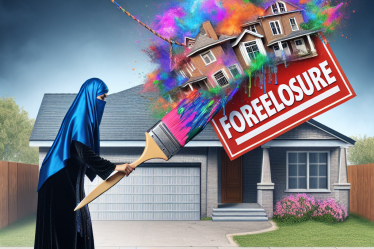
The Freedom and Fuss of Going FSBO in Virginia
Deciding to ditch the real estate agent when putting your Virginia home on the market? Good news: there’s no rulebook requiring you to hire one. Skipping an agent means escaping those hefty commission fees, but brace yourself—this path demands a hefty dose of elbow grease. You’re stepping into the shoes of a real estate pro, tasked with pricing, marketing, showcasing, negotiating, and navigating local laws without a safety net. Not for the faint-hearted, but with the right know-how, it’s entirely doable.
Breaking Down the FSBO Hustle
When you take the “for sale by owner” route in Virginia (or anywhere else), you’re signing up for a multi-layered gig. Your to-do list includes setting the right price, snapping eye-catching images, blasting your listing across channels, arranging showings, wrangling offers, and hammering out deal details. The entire dance divides neatly into three key beats: crafting your listing, hunting for the right buyer, and sealing the deal.
Shaping a Magnetic Listing
Start by penning a vivid, compelling snapshot of your home’s highlights. Beyond the basics—square footage, bedroom and bathroom count, construction year, and lot dimensions—drop in any standout features like a swanky new kitchen, a pool perfect for Virginia summers, or even horse stables if you’re lucky. Don’t forget the neighborhood vibe, school district perks, and handy amenities nearby. If your property is tied to a homeowners association, divulge the nitty-gritty of fees, rules, and benefits.
Pair that with crisp, well-lit photos—maybe even some slick video tours—to catch the eye of scrolling buyers. Lackluster snaps are deal killers in the digital realm, where first impressions happen fast. Hiring a professional photographer can turn heads and amp up your chances of a quick sale.
The crown jewel of your listing, though, is the price. Get cozy with the Multiple Listing Service (MLS)—a treasure trove of current home sales and asking prices in your area. Virginia FSBO sellers can pay modest fees to online services like Houzeo, Homecoin, or Virginia Flat Fee MLS to broadcast their homes on the MLS, expanding reach dramatically. Tiers of service here range from basic listings to full-on marketing packages, some even offering to coordinate open houses or showings—but remember, more services mean smaller savings at closing.
Boosting exposure through social channels like Facebook, Nextdoor, or Craigslist can widen your audience, but tread carefully with personal details—especially if your home’s still occupied. A legal eagle’s advice at this stage is gold, ensuring you dodge pitfalls and keep everything by the book during closing.
Essential Seller Disclosures in Virginia
Hands-on sellers must be fluent in Virginia’s disclosure demands. State law mandates a Seller’s Disclosure Statement, detailing the property’s condition and any known flaws. Additional paperwork might include flood risk declarations, lead paint notices, and radon test results. Your duty is to fill these out honestly and thoroughly. If your home’s tied to an HOA, don’t forget to provide the financial reports and bylaws—buyers will want transparency.
Is Hiring a Lawyer Necessary?
Virginia doesn’t legally require an attorney for home sales—Realtor-assisted or not. But don’t let that fool you; given the complexity and financial weight of real estate deals, calling in legal backup is a savvy move—especially if you’re flying solo. A sharp lawyer can untangle tricky contract language, troubleshoot closing hiccups, and guard your interests against costly slip-ups.
Weighing the FSBO Pros and Cons
Going it alone in the Virginia market suits the seasoned seller who’s confident and knows their way around the process. Fresh faces, however, might find themselves in chilly waters without a guide.
- Pros
- Slashing commission costs: Sellers traditionally fork over 5-6% of the sale price in agent fees. Skip the Realtor, and you pocket roughly half that, saving a solid 2.5-3%.
- Command and control: Running the show means no one else calls the shots. You set the pace, the price, and the terms—total autonomy.
- Faster turnaround potential: Agents juggle multiple clients; you won’t. This can speed up negotiations and closing if you stay on top of things.
- Cons
- Missing professional savvy: Without a licensed agent, you’re navigating pricing, marketing, and legalities solo—no industry secrets or expert advice.
- Narrower buyer reach: Agents tap into broad networks to showcase homes. FSBO listings may languish with less exposure and fewer eyeballs.
- Possibly less money in your pocket: Research shows sellers using agents average $46,603 more per sale than FSBO folks, highlighting the value agents bring despite the fees.
Virginia Real Estate Quick Stats
In Virginia, the average home stays on the market for around 26 days, with median sales prices hovering near $415,000 (as of recent data). Homes listed via Realtors tend to close quicker and at prices closer to asking than FSBO sales, which often require longer marketing and pricing adjustments.
FAQ: Your Top FSBO Questions Answered
Is it actually allowed to sell a home in Virginia without a Realtor?
Absolutely. Homeowners in Virginia frequently go the “for sale by owner” route. But keep in mind, selling solo means juggling every task an agent would normally handle, like listing, marketing, staging showings, and hammering out contracts.
Do I have to hire a lawyer when selling my Virginia house?
While not mandatory, bringing a lawyer onboard is a smart move, especially for FSBO sellers. Legal help ensures contracts are airtight, disclosures are complete, and your interests stay protected throughout the sale.


